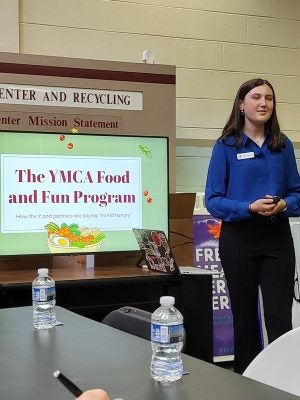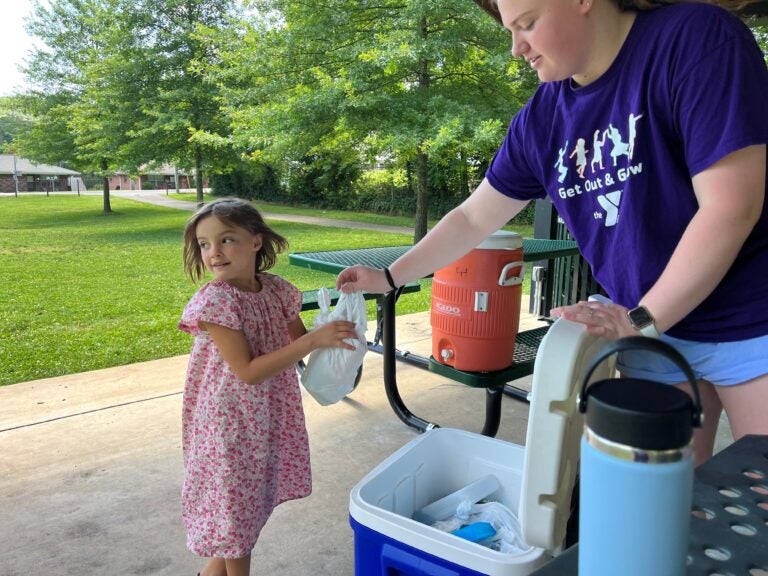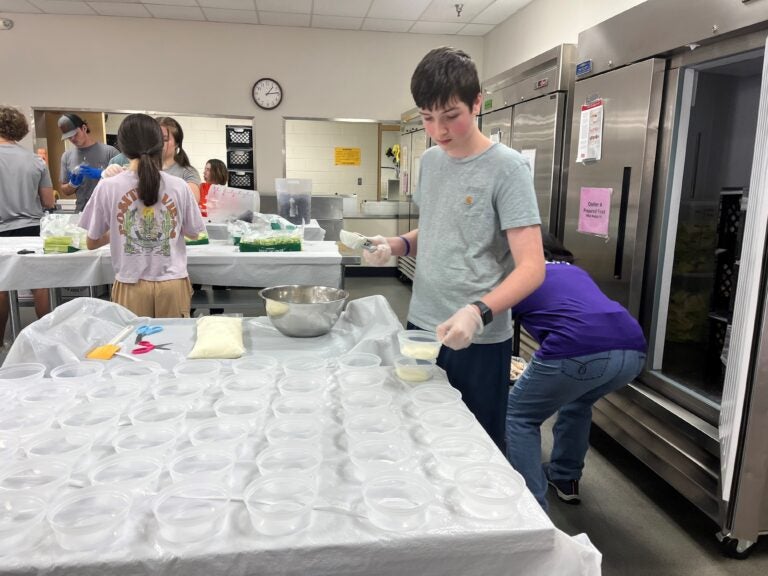5 Questions with Caroline Greenholtz, YMCA of Greater Chattanooga
Caroline Greenholtz is a No Kid Hungry Youth Ambassador working this summer at the YMCA of Greater Chattanooga. The Youth Ambassador program is a ten-week paid internship program for undergraduate students to help end childhood hunger in their communities. Learn more about No Kid Hungry’s youth engagement here.
No Kid Hungry Tennessee spoke with Caroline about the challenges, opportunities, and impact of feeding kids through summer meals.

Can you describe your community? What do you love about it?
I would describe my community as diligent. Knowing a problem exists and going about your day is easy, but that’s not how the Chattanooga community acts. There are so many childhood summer programs that only provide kids a place to get a free meal and hang out for the day, but a place where they can learn how to become strong, independent, and kind people. What I love most about my community is how much they care. People like Curtis Cecil at the Soddy Daisy Library, who makes a child redraw a drawing because he knows they have more potential, and Coach Alexander at Operation Outreach, who has any program you can think of from dance to computer literacy to prepare his kids to be resourceful and explore their passions. I love that everyone, from the program directors to the staff at the Y, does their work not because they have to but because they love their community so much they couldn’t imagine doing anything else.
How did you decide to become a Youth Ambassador? What have you learned from the experience so far?
I’ve volunteered for the Food and Fun program since I was eleven, so I was pretty familiar with the program. I am also a social work major interested in nutrition, so this job felt perfect. Nothing seemed better than getting some experience in nonprofit work I’m passionate about with a group I’ve known for almost ten years. From my time as a Youth Ambassador, I’ve learned how hardworking my community is. From an outside perspective, it’s easy to say that your community is lazy regarding social issues, but my viewpoint was completely shifted after meeting our partners. They work so hard to create a safe and welcoming environment where youth can learn how to be good people and, in some cases, redirect the course of their life by giving them a mentor and a support system they can lean on as they age. It gives me a lot of hope for the future of Chattanooga because of all the dedication put into positively influencing youth during the most formative years of their life.
What are the most memorable parts of your experience as a Youth Ambassador?
The most memorable parts of my Youth Ambassador experience are the ones where I can connect with people on a deeper level. For example, I worked the packing line with some of our staff and shared some laughs with them. It was nice because I sometimes feel the staff doesn’t know how to approach me, so having a moment where we could connect was incredibly memorable. A lot of these connective moments happen at sites too. My favorite one was at Operation Outreach, where Coach Alexander, the program director, and I talked about the program and walked around the facility. I feel like I got to understand his program and who he was on a level I hadn’t experienced with other sites. I could empathize significantly with his cause, and it was terrific.
What are some of the challenges you or your organization are facing?
Our greatest challenge is with our Mobile Fit sites. It doesn’t end up working how we want it to, and many people don’t come, even though we try to tell them we’ll be there every day. Many kids also don’t want to participate in our activities. When they do, it isn’t stimulating because there aren’t enough kids participating for it to be fun. Mobile Fit is a conceptually good idea, with consistent food distribution and summer activities. Still, it lacks in execution because there isn’t enough time or children to carry it out to its fullest extent.
If you could tell everyone in America something about childhood hunger or summer meals programs, what would you tell them?
I would say that childhood hunger can potentially detrimentally hurt the community, and summer meals can save it. Hunger can severely hurt a child physically and mentally. Malnutrition can cause children to not fully grow, develop a scarcity mindset that can cause depression, anxiety, and other mental health disorders, and be more susceptible to disease. Hunger also has the potential to increase crime rates. Summer meal programs help kids get the nutrients they need to grow, stay healthy (mentally and physically), and be better at decision-making.




